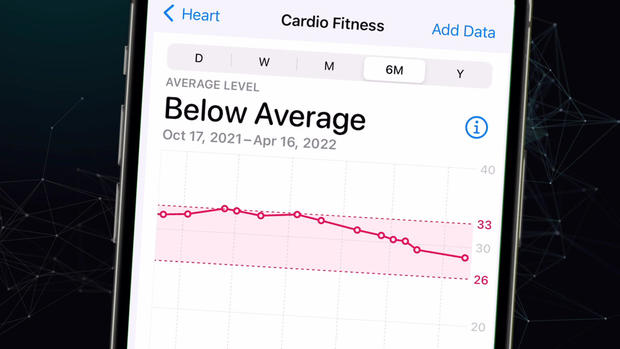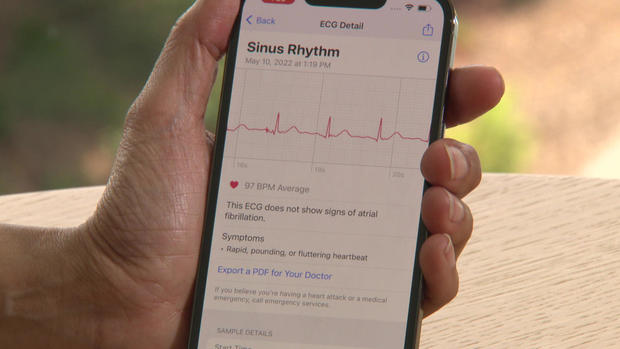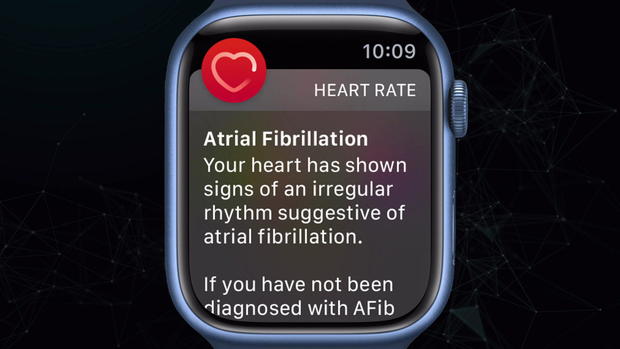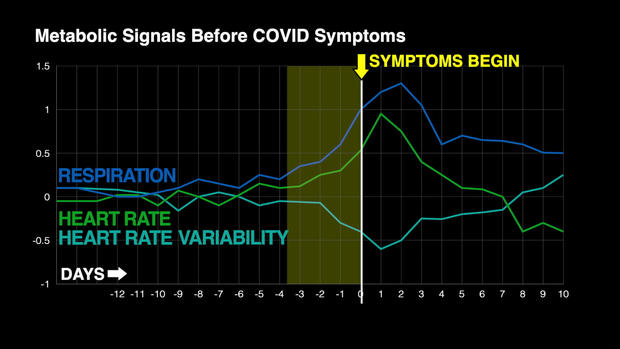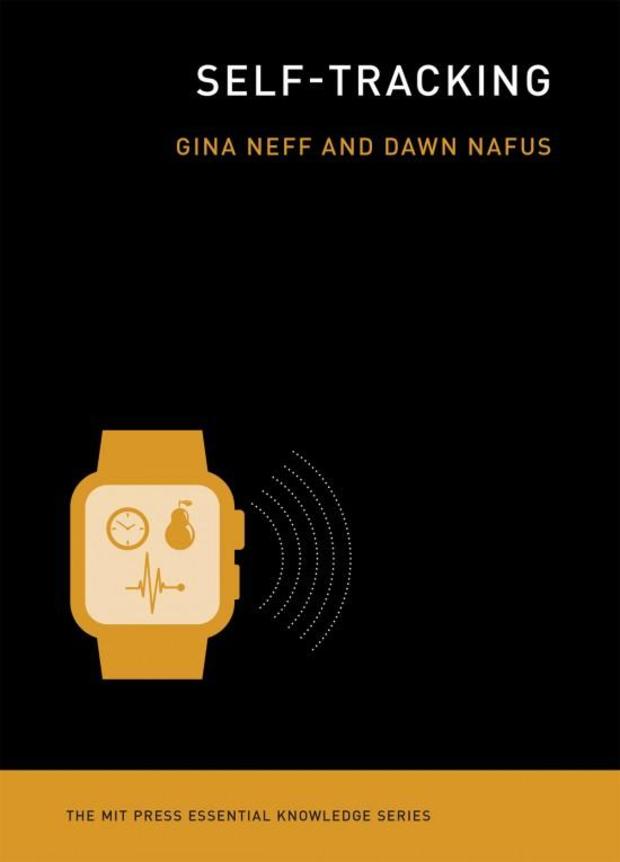Self-tracking your health data – CBS News
[ad_1]
When you were growing up, the closest you ever got to a personal medical data-collection device was probably a thermometer, or a bathroom scale. But these days, health trackers are a lot more sophisticated – and a lot more wearable.
Smartwatches from companies like Fitbit and Apple are teeming with tiny sensors that display their findings on your smartphone. They can track heart rate, irregular heartbeats, blood oxygen levels, noise notifications, and even hand-washing. And, of course, your pulse rate.
CBS News
Dr. Sumbul Desai, vice president of health at Apple, demonstrated to correspondent David Pogue how an Apple Watch can warn you about dangerous sound levels, measure your cardio fitness, and even perform an electrocardiogram.
“And if you want to choose to share this with your doctor, you can hit ‘export to PDF,'” she said.
CBS News
But the most life-changing talent of the latest smartwatches is brand new: They can give you early warning of medical problems. “For example, if you’re sleeping more or sleeping less than you used to, if your heart rate is at a different baseline heart rate than it was, those are early signs of things that may be going on,” Desai said.
Pogue asked, “Without my having to check anything, it will actually tell me if it discovers something alarming?”
“It will. Another one is walking steadiness, which is, if we notice changes in your gait, we can actually give you an early notification where you can do something about it.”
Then there’s atrial fibrillation. It’s a heart condition where your heart quivers instead of beating. As many as 6 million Americans have it, often resulting in a stroke. Trouble is, the episodes are intermittent, so a doctor might miss it at your checkup. But the watch is with you all the time. “Our watch can detect if your heart is beating out of rhythm, and will surface up a notification,” Desai said.
CBS News
“Has this feature saved any lives?”
“Almost every day. Their physicians are actually telling them, ‘I’m so glad you showed up when you did because this really could’ve ended much differently.'”
Stanford School of Medicine professor Michael Snyder is conducting several studies to see how far wearables can go in detecting disease. “You don’t drive your car around without a dashboard,” he said. “Yet, here we are as people. We’re more important than cars, but we’re running around without any sensors, most people. And we should be wearing these things, in my opinion, because they can alert you to early things.”
When asked what conditions a smartwatch might be able to detect one day, Snyder replied, “Infectious disease, anemia, even type II diabetes. And then in the future, I’m pretty confident there’s other things, for sure, heart conditions. We’re working to see if we can detect cancer right now.”
Snyder got a taste of his own smartwatch medicine last month. On the day of a cross-country flight, he felt congested. His own research app alerted him of sudden changes in his breathing and heart rates: “So, I did a COVID test, and it turns out I was negative. So, I went ahead and got on the plane. Big mistake.”
He did have COVID. “I listened to my COVID tests, and I should’ve listened to my smartwatch,” he said.
And sure enough, in a Fitbit study involving 100,000 people, those metabolic changes predicted COVID three days before any symptoms appeared.
CBS News
Now, at the moment, Snyder’s app can’t tell what is causing your vital signs to go screwy. “Right now, we can’t tell the difference between certain kinds of stressors, like workplace stress and mental stress vs. COVID,” he said. “But in the future, we will.”
University of Cambridge professor Gina Neff is the co-author of a book about self-tracking, and overall, she’s a fan.
MIT Press
“I am here to say that these data are great,” she told Pogue. “People who self-track are more likely to be connected to other people, and when they’re connected to other people, they’re more likely to be happier.”
But she does worry about who gets to see our medical data. “Imagine devices that are being used in warehouses, to determine if someone is moving fast enough,” she said. “Imagine devices that you sign up for to help train you to be a safer driver, but it’s instead used to raise your insurance premiums. These are scenarios that are used in companies today.”
At least Apple and Fitbit say that they can’t see your data. According to Desai, “Apple does not have access to any health information for a user. It is on the device, encrypted, and in the user’s control.”
“You don’t have some engineer that could look up David Pogue’s blood oxygen level?”
“Absolutely not.”
For Stanford’s Michael Snyder, the promise of disease detection on your wrist is a goal well worth pursuing: “Three-point-eight people on the planet have a smartphone, but if you can pair that with a $50 smartwatch, you’d have a health monitoring system for 3.8 billion people. I think we’re just at the tip of the iceberg on what’s possible.”
For more info:
Story produced by Amol Mhatre. Editor: Mike Levine.
[ad_2]
Source link






